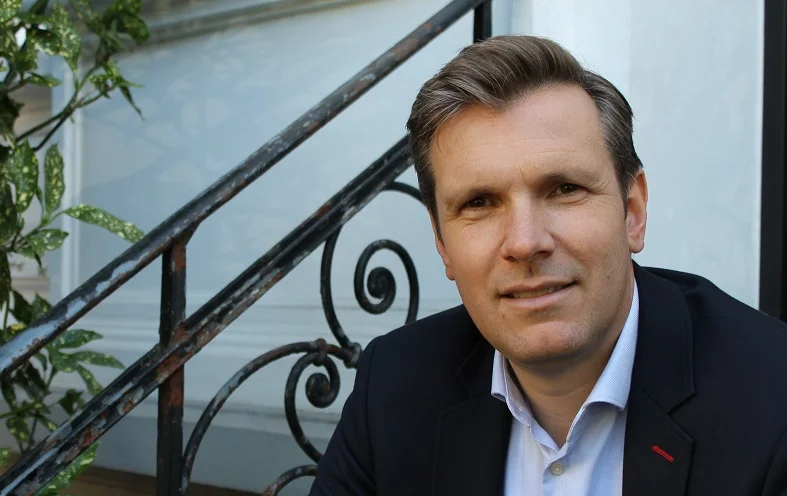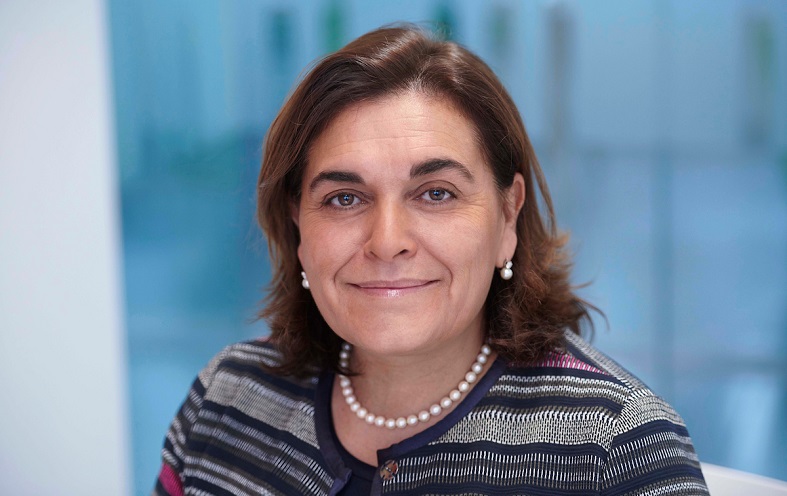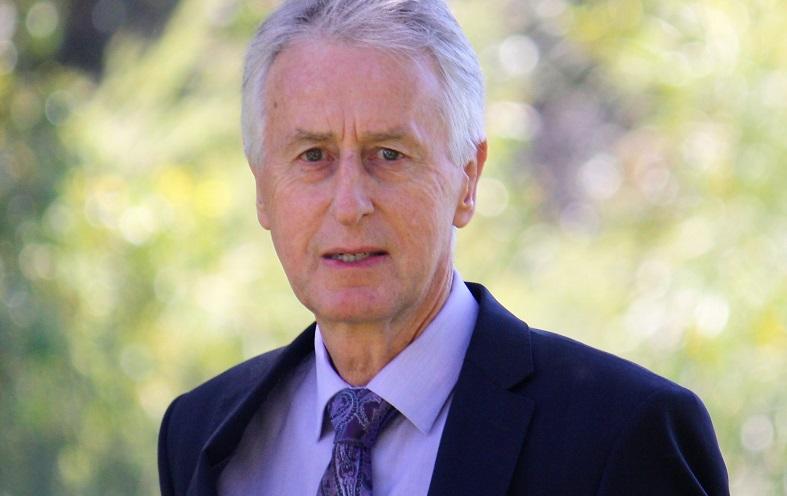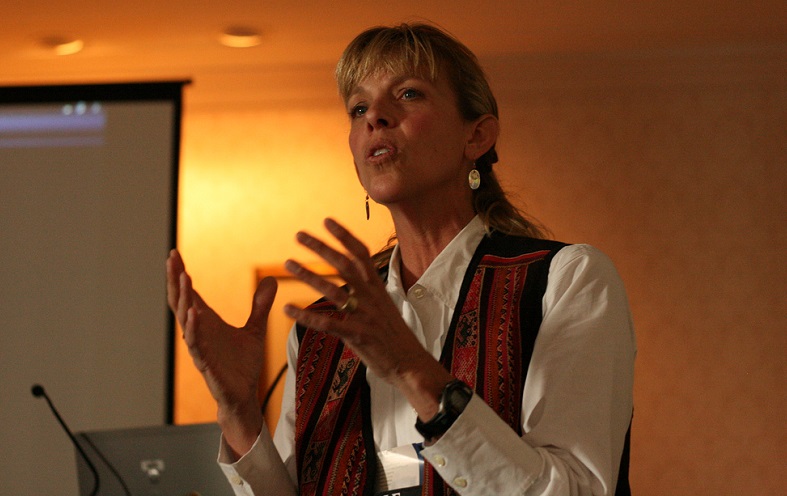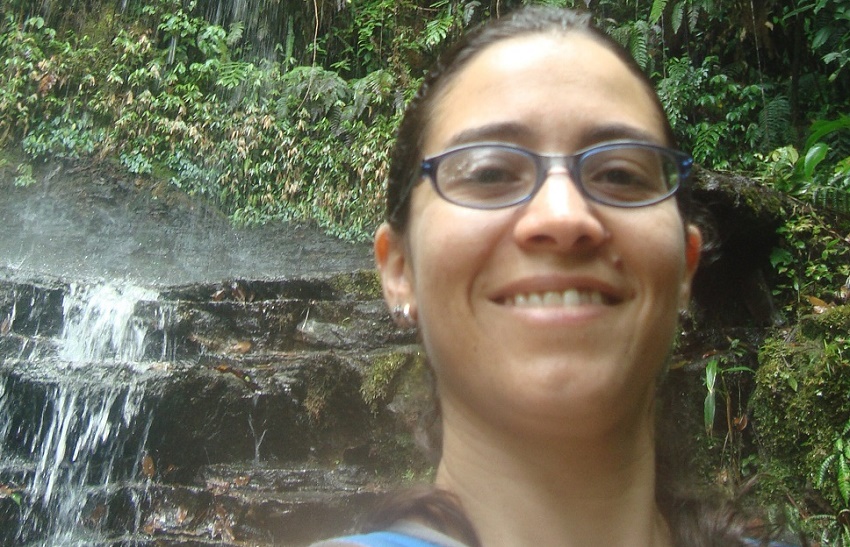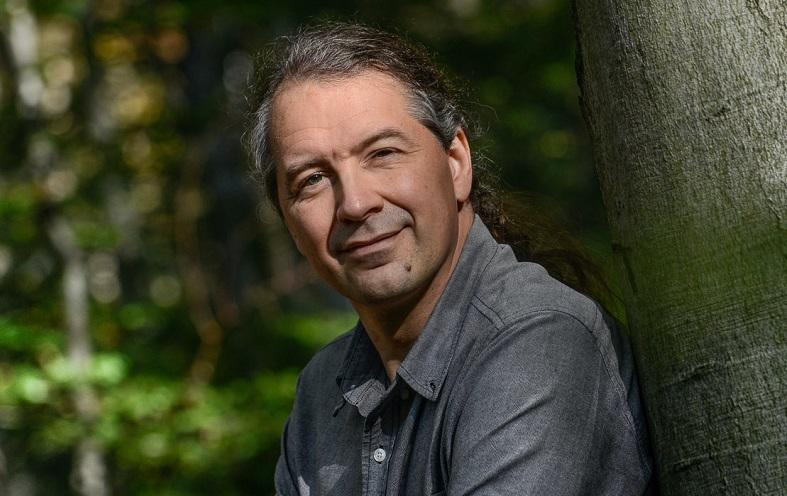
From research to practice and vice versa: in this week’s sustainability leaders portrait, meet Christian Baumgartner, a highly regarded sustainable tourism advisor and lecturer in Austria and Switzerland.
Christian introduces us to the sustainable development and tourism courses which he is involved in as Professor for Sustainable Tourism at Graubuenden University’s Institute for Tourism and Leisure (ITF) in Eastern Switzerland. He also shares how he got involved with sustainable tourism research and consulting, which challenges destinations in the European Alps are currently facing concerning sustainable tourism and which businesses and destinations in the region are championing sustainability.
Christian, having been involved in the consulting and teaching of tourism and sustainable development for many years, do you remember what first got you interested in the topic?
Well, this is a nearly life-long story. I got involved in the youth organisation of the Austrian branch of an International NGO – Naturefriends. I learned to ski there when I was six. Later on, started to organise youth camps and international seminars. And as the Naturefriend organisation was involved in the alpine approach of ‘gentle tourism’ already in the 80s, it was easy to come in touch with this topic. It was at that time that I was also very much influenced by the work of Jost Krippendorf and Robert Jungk, arguing against the destruction of the Alps by mass tourism, and Dieter Kramer’s work on social tourism.
My studies of landscape ecology gave me a professional background, and after my studies, I founded an NGO: respect – Institute for Integrative Tourism and Development. respect started with a critical but constructive approach to tourism in Europe – one of the few NGOs that tried to cooperate with the tourism industry to develop things – but soon widened its focus to development cooperation and global tourism development.
How has your view on sustainability in connection with tourism changed over the years?
When I started to work in that field – before the Rio conference in 1992 – we neither talked about sustainable development nor sustainable tourism. The term ‘sustainable tourism‘ developed mainly at the Lanzarote conference of UNEP and UNWTO in 1995.
As far as I can remember, my personal view in those days included both environmental and social issues, and economic impacts as well.
The discussion within the tourism industry has changed a lot. In the beginning, many practitioners misunderstood sustainability as a new word for environmental protection. Today, this view is widened and now also includes regional products and cultural aspects in our common understanding of tourism sustainability. But still, good working conditions, human rights, and governance as inherent parts of sustainable tourism have to be explained to many.
Personally, I learned to be more pragmatic when it comes to step-by-step approaches, instead of big solutions, which is especially important if you work with large tour operators. It is important not to be satisfied with only small steps forward, but to always keep the long-term goal of transforming tourism in mind.
You joined the Institute for Tourism and Leisure at the University of Applied Sciences of the Grisons (FHGR), Switzerland, as Professor for Sustainable Tourism. Why? How is tourism sustainability approached at the university?
When joining, I was very impressed that sustainability is not only important at the FHGR Institute for Tourism and Leisure, but an important value for the whole university, which it tries to implement in different areas and on different levels. The Institute wants to position itself as a leading Swiss academic institute in sustainable tourism – having both a regional, alpine, and a global view on tourism development and its role as an implementer of the Sustainable Development Goals.
That means we have a teaching focus on sustainability in tourism: the ‘Sustainable Tourism and International Development’ major, since its inception four years ago has created huge interest among the students.
But sustainability is also one of the four strategic core areas of the Institute, which means that we focus our research and services in this area. Those projects have a rather wide approach – both concerning the content but also the geographical coverage. For example:
- We cooperate with an important Swiss winter sports destination, aiming to transform it as a model region for sustainable tourism.
- Together with UNWTO, WEF, and Global Compact – financed by SECO, the Swiss state secretariat for tourism – we are in the development phase of a high-level executive course focusing on using tourism as an instrument for the implementation of the SDGs. This course will start with a series of virtual ‘resilience in tourism’ workshops, to use the COVID-19 break for more sustainable tourism.
- And, to illustrate our development approach, we are currently evaluating the success factors of community-based Tourism (CBT) in Kyrgyzstan and are preparing a know-how transfer from there – together with Swiss knowledge – to other mountain areas in Georgia and Iran.
Over the last 15 years, you have gained considerable expertise through your consultancy response & ability. How has the profile of clients and projects changed during this time?
When we started our efforts in sustainable tourism, both as an NGO and with my company, the clients were mainly from the development sector. In Austria and the Alps, that was the boom period of independent regional development, which is often linked to tourism. The governmental and civil society organisations dedicated to development cooperation (EZA) also discovered tourism as an instrument of sustainable development at that time, something that has been reflected in recent years in the SDGs and the UN declaring 2017 as the International Year of Tourism for Sustainable Development.
And it was the time for awareness-raising campaigns, both among travellers and among tour operators and destinations.
Especially the latter has clearly changed: today there are many more tourism stakeholders, accommodation providers, tour operators, but also destinations that are seeking support in implementing their sustainability efforts. However, tourism is still a major theme in development cooperation.
Communication methods have become more professional – or even more subtle. From the wooden hammer of the 1990s, we have now moved on to nudging.
You also teach at FH IMC Krems. Are there any differences between Austria and Switzerland in how sustainable tourism is approached in research – and especially in practice?
In research and teaching, I cannot identify any general differences; it is rather a matter of how much importance different colleges and universities attach to the topic of sustainability. At the moment, I see the momentum here, more at Swiss universities, but perhaps this is also because I live very close to Switzerland.
Surprisingly, in practice, apart from obvious similarities, there are also considerable differences in tourism between the two neighbouring countries, which is also reflected in the implementation of sustainability.
What is similar, however, is that the really good examples tend to be at the level of a few destinations and businesses, rather than being reflected in the large governmental framework.
In Austria and Switzerland, tourism subsidies tend to be counterproductive in terms of sustainability, and demonstrated creativity with regards to new winter scenarios – keyword climate change – is lacking in both countries.
One clear sustainability advantage of Switzerland is the fact that travel to holiday destinations is often more climate-friendly. The reason for this, however, lies less in ‘tourism’ than in the almost perfect public transport system in Switzerland.
Which part of making a tourism business more sustainable is the most difficult, in your experience?
The larger a company is, the more difficult it generally is to take drastic measures. If shareholder value is the main focus, it becomes more difficult than with smaller family-owned companies.
Money, of course, plays a major role. Once accommodation providers understood that operational costs could be reduced by saving energy, water, and waste, environmental protection measures were no longer a major issue.
Much more difficult – but still feasible – is to make a financial argument around working conditions, such as offering year-long contracts rather than just seasonal. This for me belongs to the most underestimated area in the context of sustainable tourism.
And it becomes very difficult when the common good stands against individual financial or emotional gain, that is when well-established business models should be changed to increase the good of all. We all know that flying is one of the biggest sustainability problems of tourism. Does this change supply or demand? Only marginally.
The biggest challenge with such issues is to get politicians to create framework conditions that are supposedly (!) contrary to economic and consumer interests but in the interests of the long-term well-being of Nature and communities.
Which are the main trends right now, likely to impact tourism professionals in the years ahead, linked to sustainability?
I am quite sure that tourism will change dramatically within the next 20 years – due to climate change and its impacts, to the point of increased political unrest, for example in the arid regions of the world, but also through returning crises and imponderables as we are currently experiencing with COVID-19.
Tourism professionals must be experts in resilience. They must be transformation managers and, above all, good communicators – beyond marketing expertise. The challenges of future work lie in multi-stakeholder management, process moderation, and intercultural work. Soft-skills will, therefore, become increasingly important.
You just attended a roundtable discussion in Berlin on Germany’s tourism strategy. What advice did you share with members of parliament and industry leaders?
- More clarity is needed. The anchoring of sustainability in existing tourism strategies is superficial and unspecific.
- More effective government climate protection measures are needed – not only, but above all, in air travel.
- Regional climate change adaptation strategies are needed.
- More customer transparency is needed – such as through a climate or sustainability footprint on travel packages.
- Booking platforms are needed as partners. Their rankings should primarily be based on sustainability criteria, rather than price.
- More knowledge and comparable monitoring are needed, e.g. through a comprehensive implementation of the EU Tourism Indicator Scheme ETIS.
- More intensive and priority marketing for sustainable tourism is needed.
- There is a need for the participation of all stakeholders in the decision-making process for tourism development or tourism projects.
- Financial steering instruments are needed – and a promotion policy that is clearly oriented towards sustainability.
- We need an agreement on the belief in growth and new indicators for assessing tourism success.
Which tourism businesses or destinations have inspired you within the last years for their innovative or exemplary approach to sustainability?
At the level of accommodation facilities, apart from good environmental protection measures (which should be the expected standard nowadays), I can only think of Austrian examples:
- Hotel Hochschober and Alpenresort Schwarz for their employee programmes
- Hotel Magdas for its social approach
- Boutiquehotel Stadthalle for its energy programme
On a regional level, one of my favourites is certainly the Val Poschiavo in Switzerland, with the 100% Val Poschiavo project, which shows how cooperation between tourism and local production can function at a high level.
Many tour operators have begun to take a closer look at the human rights impact of their activities. Kuoni, and now DER Touristik play a pioneering role in this regard. Also, the members of Forum Anders Reisen who have begun to include CO2 compensation for their air travel in the price of their holiday – exemplary in terms of climate protection.
Thank you, Christian.
Connect with Christian Baumgartner on LinkedIn or find out more about his research and teaching at the Institute for Tourism and Leisure (ITF) at the University of Graubuenden in Switzerland.
Enjoyed our interview with Christian Baumgartner on the sustainable tourism leaders and challenges in the European Alps? Thanks for sharing!


